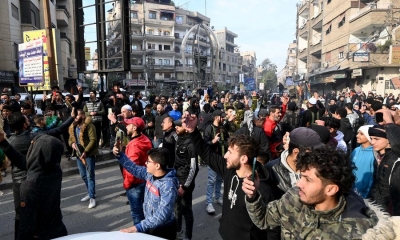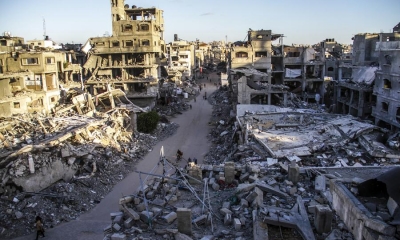A Just Solution to the Middle East Conflict is a Must
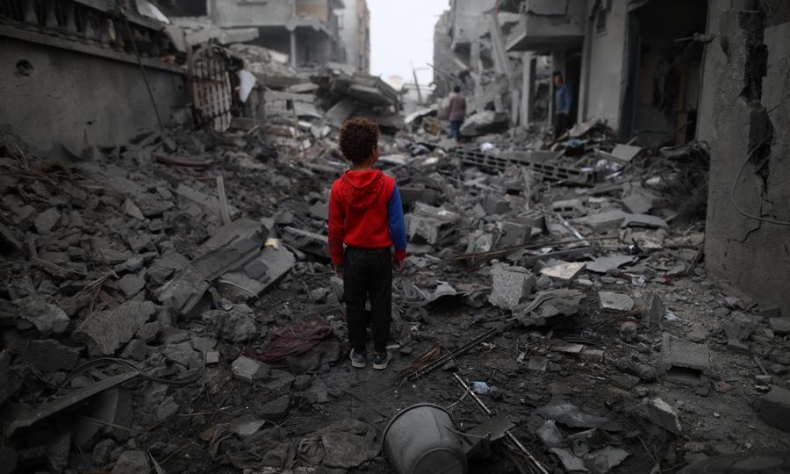
The international community must make every effort to help bring peace to Palestine and to bring a just solution to the conflict there.
Tensions are rising in the Middle East and the risk of a regional war looms over the region. Diplomacy has yet to restrain escalation and prospects for peace unfortunately are dim at this time. The regional situation is complex.
Israeli assassinations raise tensions
There is the devastating Israeli incursion into occupied Gaza since the tragic October 7 events of last year. There is increasing Israeli pressure on the occupied West Bank. There is the matter of continued Israeli assassinations of top-level Hamas and Hizbollah officials. There are the continuing Israeli air attacks on Lebanon and Syria. There is the Israeli intransigence at the negotiations over a ceasefire in Gaza.
As of this writing, the response by Hizbollah for the Israeli assassination in Beirut, Lebanon of a top leader has been made. Israeli intelligence and military targets were struck by Hizbollah drones and old-style Katusha rockets. Israel imposed a news blackout on reporting of any damage sustained so details are hard to confirm.
Nevertheless, it appears that Hizbollah’s strategy was to respond in a symmetrical way to the Beirut assassination. Thus, because Beirut is the capital of Lebanon, it was decided to attack a target in the immediate Tel Aviv area.
The Hizbollah retaliation for the assassination is a separate matter from its support for Hamas in Gaza and the Resistance struggle. As this strike was completely successful, according to Hizbollah spokesmen, the organization will now focus again on supporting the Resistance in the present war of attrition mode. It remains to be seen, however, whether this Hizbollah retaliation will have any deterrent effect on Israel.
The response from Iran to the assassination in Tehran of a top Hamas official, Ismael Haniyeh, is expected. The issue here is that Haniyeh was an official guest and was attending the inauguration of the newly elected president of Iran who had been a good personal friend. He was assassinated while staying in an official guest house by some type of rocket.
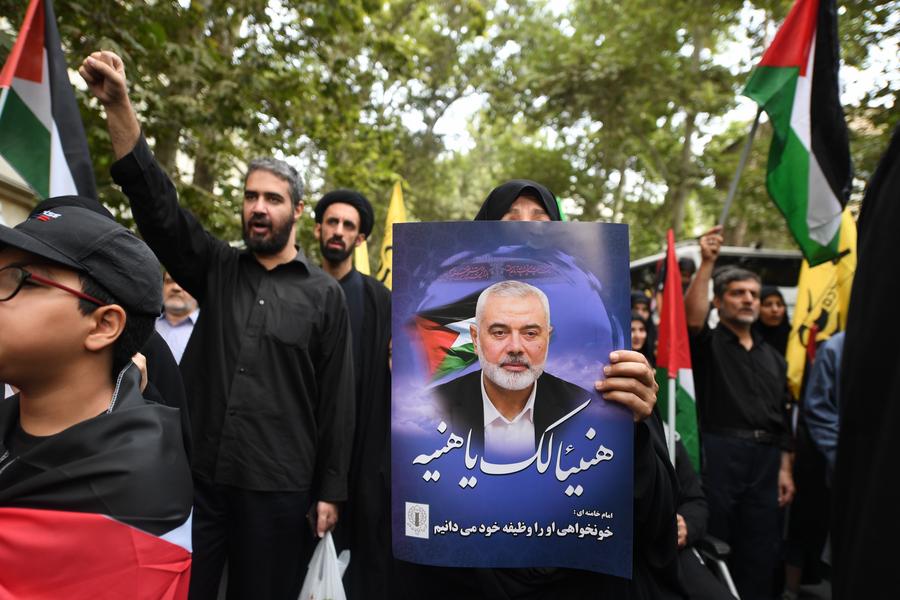
This case is a very sensitive matter in Iran as security for a high-ranking foreign guest was breached. In April this year, Israelis assassinated three top Iranian officials involved with supporting Hizbollah and regional resistance organizations. This assassination occurred in Damascus, Syria at the Iranian diplomatic consular office during a meeting of the officials.
Tehran’s response to that attack was measured using drones and old-style Katusha rockets. Interestingly, according to Iranian sources, the mission was to collect valuable intelligence information as well as to respond to the assassinations.
But the mission failed to provide a sufficient deterrent effect as the Haniyeh assassination demonstrated. So, some observers say that Iran will launch a more powerful response so as to induce a deterrent effect on Israeli leaders.
Gaza ceasefire negotiations break down
While Hamas did accept the July 2024 ceasefire proposal by the United States, the Israeli side has balked and has added changes and demands which Hamas will not accept. Their feeling is that they did accept the U.S. proposal as it was written but will not accept the substantive changes that Israel advanced. Further, they have said they do not want to engage in negotiations just for the sake of negotiations with no tangible results.
Terms that Hamas will accept include a permanent ceasefire, the removal of all Israeli military forces from Gaza, and the return of Palestinians to their homes. The Israeli side says it will not end the war against Hamas and will not withdraw all its military forces. Additionally, the Israeli side demands retaining military forces in the Philadelphia corridor which is a narrow strip between Egypt and Gaza and supposed to be a demilitarized zone. The Israelis also demand another militarized corridor which would divide Gaza in half north to south.
It is clear to seasoned observers that the Israelis, aided and abetted by the U.S., are not engaging in a sincere peace effort. The game for them seems to be to stall and draw out the negotiations so that they can continue their brutal campaign in Gaza. This is not to mention providing cover for very aggressive land seizures in the occupied West Bank.
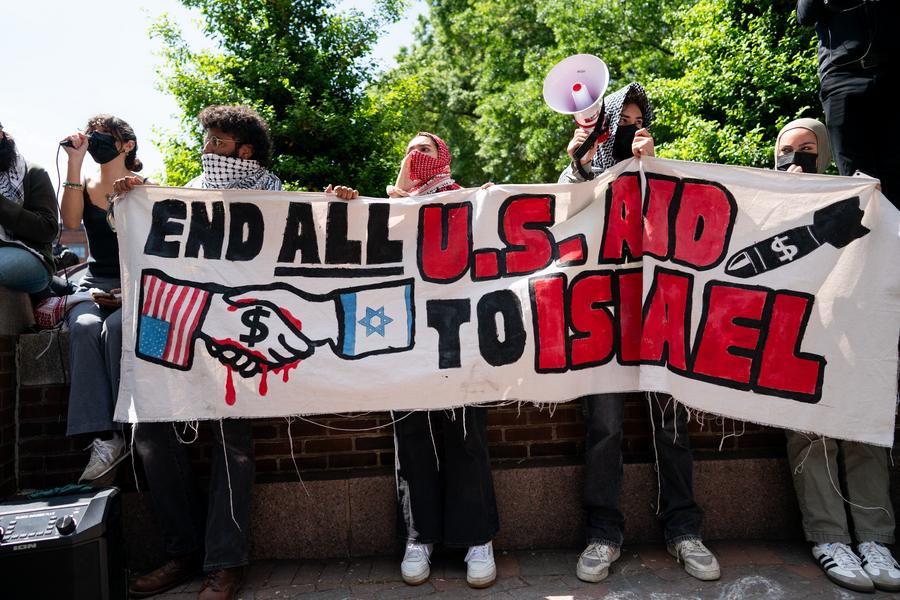
What future for Palestine?
Over the years, a number of scenarios for Palestine have been registered.
Looking back at the World War I era, when the Ottoman Empire joined with Germany and the Central Powers, its fate was sealed by the Allied victory. This meant that the Arab lands held for centuries by the Ottomans would be divided among the victors, Great Britain and France.
Knowing this, the Zionist political movement intervened in British and American politics to gain support for their project of a “Jewish State” in Palestine. The Zionist movement’s goal was established in 1897 at the World Zionist Conference in Basel, Switzerland. It was promoted internationally by Theodore Herzl a talented and effective leader of the movement.
The so-called “Mandate” system was imposed on Syria giving it to France. Palestine and Mesopotamia (Iraq) were given to the British.
British leaders like Lloyd George and Winston Churchill strongly supported the Zionist project. This meant that the British empire would support greatly increased immigration of European Jews to Palestine. Arabs reacted negatively to this perceiving that someday in the future Jews could outnumber Arabs and thus take control of Palestine according to the Zionist program.
Although leading British statesmen such as Lord Curzon opposed the Zionist project it went forward with the support of the political leadership. Professional diplomats and academic specialists foresaw that the Zionist project would be disruptive and impair British interests in the Arab world as well as in the Islamic world.
Various scenarios for Palestine were put forward. Palestine could be a single bi-national state with Arabs and Jews in which Moslems, Christians, and Jews could live on an equal citizenship basis. If Jewish immigration was limited then Palestine would be Arab dominated. If Jewish immigration was opened up then Palestine could become a Jewish dominated state.
Another scenario was the partition of historic Palestine into two states: one Arab and one Jewish. Various maps were developed but at the same time there were large demographic shifts owing to European Jewish immigration resulting from Hitler and World War II.
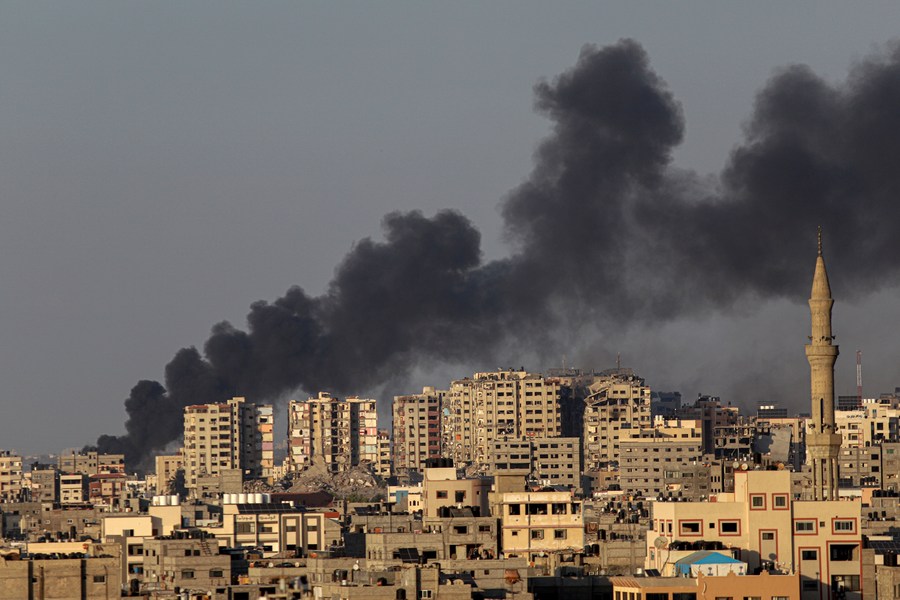
In addition to one-state and two-state proposals was a proposal for one state but with cantons along the Swiss system.
After World War II, proposals for both a one-state and two-state solution were put forward after Great Britain gave up its Mandate in 1948. In a close and controversial vote, the two-state solution won the day and thus the Partition Plan was recommended.
Before this plan could be implemented by the United Nations, Israel declared its independence on May 14, 1948. This move partitioned Palestine in effect leaving the West Bank, East Jerusalem, and Gaza as future areas for a Palestinian state. The 1967 June War (Six Day War) resulted in these areas being occupied by Israel.
Tragically, the struggle for the Palestine state continues. No final settlement seems in reach at the present time although there have been several diplomatic efforts. There have been positive developments on the diplomatic side in that China has helped bring together various Palestinian factions. Also, it was just announced that Palestine will be invited to the upcoming BRICS meeting in October hosted by Russia.
The international community must make every effort to help bring peace to Palestine and to bring a just solution to the conflict there.
The article reflects the author’s opinions, and not necessarily the views of China Focus.
 Facebook
Facebook
 Twitter
Twitter
 Linkedin
Linkedin
 Google +
Google +






